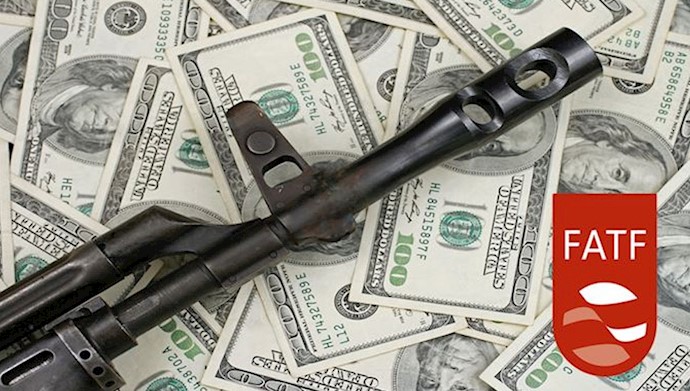Analysis by PMOI/MEK
Feb. 20, 2019 – Iranian state-run television reported that once again the Expediency Council was not able to decide the fate of the FATF bills and the decision has been postponed to its next session in two weeks.
In a program titled, “More attention to national dignity in reviewing the Palermo bill,” the news outlet reported: “Today, the bill for joining Iran to United Nations Convention against Transnational Organized Crime (UNTOC), also called Palermo, was discussed again in the Expediency Council. While reiterating that the grand demonstration on February 11 showed that the people value their dignity highly, Chairman of the council said: ‘With Europe’s delays and suspensions regarding INSTEX, also called the European financial mechanism, it is clear that what Europe wants is more. We must keep this in mind that when we say something for or against Palermo, is it really in the interests of the Islamic Republic to go along with this bully demands of western countries?’ At the end, the discussions about the bill didn’t finish today and the final decision has been postponed to the next session.”
Mahmoud Mohammady Araghi, member of the Expediency Council, tried to explain why the decision has been postponed and connected it to a change of mind by the Council’s chairman, Amoli Larijani.
“This is our regime’s strength that legal institutions have their special mandates. This is the Islamic Republic and it’s not like the U.S. that Trump can leave a convention overnight,” he claimed.
The JCPOA that Mohammady Araghi is referring to is not a convention. It was a deal between the Obama administration plus other world powers and Iran. In order for it to become legally binding for future U.S. administrations, Obama had to take it to the congress and put it to vote. But he didn’t do that because there wasn’t enough support in the legislative for the deal. In addition, Trump didn’t withdraw from the deal overnight. He said from the beginning of his presidency that it was a bad deal and threatened numerous times to leave it unless it was amended. But it was not, so he left it.
Parviz Davoodi, deputy to former regime president Mahmoud Ahmadinejad, tried to present the impasse as rooted in the officials’ concerns for ordinary people’s livelihoods.
“One of the major concerns of the Council is the economic situation of the country and the livelihood [of the people]. Therefore, both the proponents and opponents had arguments where the opponents argued that joining will damage the people’s livelihood and the proponents argued that if we don’t join [the convention] the people’s livelihood will be damaged.”
Meanwhile, Ahmad Tavakkoli, a member of the council, wrote an open letter to the council’s members and members of the Iranian regime’s parliament arguing that INSTEX “is a condescending formula less than even oil for food,” and described approving FATF as humiliating and contemptible.
The letter mentions two official statements by Europe and describes the Islamic Republic’s response concerning and in contrast to national—read the regime’s—interests.
Tavakkoli says that these two European statements are its announcement of INSTEX and European Council’s report where the council “expresses its serious concerns about ballistic missiles activities and calls upon the Iranian [regime] to abandon these activities.”
The report also accuses the Iranian regime of supporting terrorist operations in European countries and urges it to respect human rights.
Tavakkoli writes about INSTEX: “This condescending formula isn’t even ‘oil for food’ that was put in place for Iraq during Saddam’s era. Since European’s don’t buy our oil, they allow us as a mediator to buy food and medicaments whose prices are decided by the monopolizing seller, with the oil money that they’ve allowed us to sell, to rescue us from hunger and illness! This is not the only belittlement. The statement also orders Iran to create a transparent company that will do the exchanges. In addition, this mechanism, that is unclear when it will become operational, is conditioned to Iran’s swift acceptance of FATF!”
In the last part of his letter he writes: “Isn’t it beneath the dignity of Mr. president! and the honored ministers! to describe this arrogant and insidious behavior that violates their commitments as positive? Humiliation and groveling is not working with Europe.”





